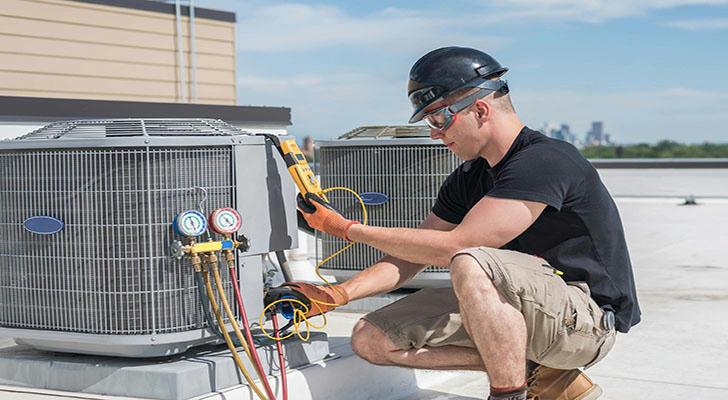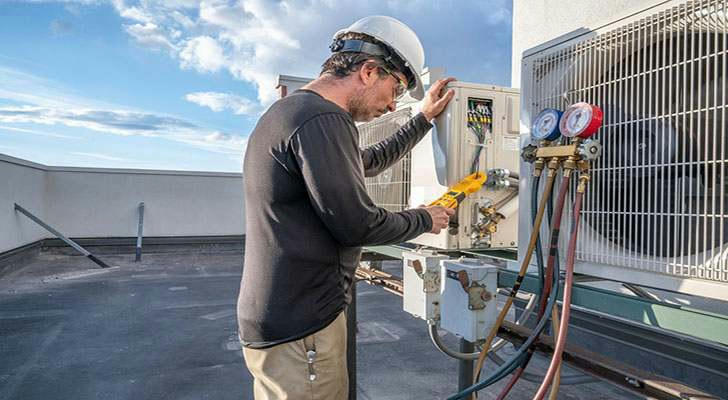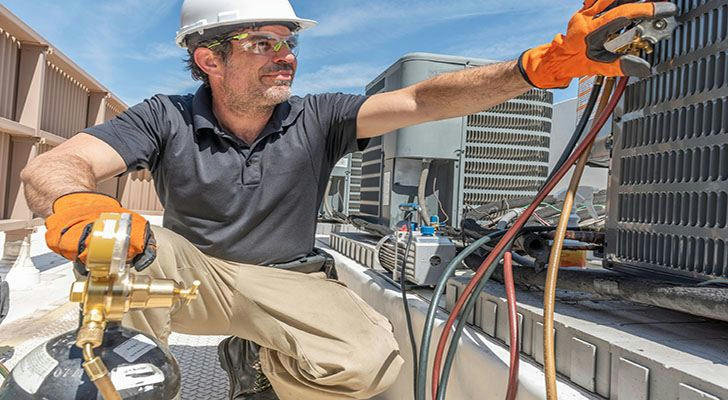HVAC Technician Certification: Building a Career in Heating, Ventilation, and Air Conditioning
Heating, Ventilation, and Air Conditioning (HVAC) technicians play a vital role in ensuring comfortable, safe, and energy-efficient indoor environments. As climate control systems become more sophisticated and energy regulations tighten, the demand for skilled HVAC technicians continues to grow. Obtaining HVAC technician certification is an essential step for those pursuing a career in this dynamic and rewarding trade.
This article provides an overview of HVAC technician certification, the training involved, career opportunities, and how to get started.

What Is HVAC Technician Certification?
HVAC technician certification is a formal recognition that an individual has met industry standards for knowledge and skills in installing, maintaining, and repairing heating, cooling, and ventilation systems. Certification programs typically combine classroom learning, hands-on training, and testing to ensure competence.
Certification demonstrates to employers and clients that a technician understands system components, safety protocols, diagnostic techniques, and relevant codes. It also reflects adherence to environmental regulations, especially regarding refrigerant handling.
Types of HVAC Certifications
There are several certifications available for HVAC technicians, each targeting different skills or specializations. Common certifications include:
• EPA Section 608 Certification: Required by the U.S. Environmental Protection Agency (EPA) for anyone who handles refrigerants. It has multiple types based on the equipment handled, such as Type I for small appliances, Type II for high-pressure systems, and Type III for low-pressure systems.
• NATE Certification (North American Technician Excellence): Widely respected certification that validates a technician’s knowledge and skills across various HVACR specialties.
• HVAC Excellence Certifications: Provide credentialing for both professional and master technician levels.
• State or Local Licensing: Many states and municipalities require HVAC technicians to hold a license, which often requires passing an exam and meeting experience requirements.
Why Certification Is Important
Certification enhances a technician’s credibility and employability. It assures employers that the technician can perform safely and competently, reducing risks of accidents, system failures, or code violations.
Certified technicians often command higher wages and have access to more job opportunities. In some cases, certification is mandatory to legally work with refrigerants or in certain jurisdictions.
Moreover, certification is a mark of professionalism that helps technicians build trust with clients, particularly in service and repair roles.

HVAC Training and Certification Process
Becoming a certified HVAC technician typically involves completing an accredited training program. Training options vary widely, including:
• Technical schools and community colleges offering certificate or associate degree programs focused on HVAC theory, electrical systems, refrigeration, and system design.
• Apprenticeships combining paid on-the-job training with classroom instruction, lasting from three to five years.
• Online and hybrid programs that provide flexibility, with practical components completed in person.
Training covers core topics such as electrical wiring, system diagnostics, refrigerant handling, heating and cooling principles, safety standards, and blueprint reading.
After training, candidates must pass relevant certification exams, including written and practical tests, to demonstrate competency.
Career Opportunities and Earnings
HVAC technicians find employment in residential, commercial, and industrial sectors. Common job roles include HVAC installer, service technician, maintenance technician, system designer, and energy auditor.
According to labor statistics, the median annual wage for HVAC technicians in the U.S. is around $50,000, with experienced technicians earning more. Specialized skills, such as working with commercial systems or energy-efficient technologies, can lead to higher pay.
The profession offers job stability due to ongoing demand for climate control systems, energy efficiency upgrades, and routine maintenance.
Who Should Pursue HVAC Certification?
HVAC certification is suitable for individuals who enjoy working with mechanical systems, problem-solving, and hands-on technical work. A background in electrical or mechanical trades is helpful but not always required.
Candidates should be comfortable with physical labor, working in varied environments, and troubleshooting complex systems. Good communication skills are also valuable for interacting with customers and team members.
HVAC certification offers a solid career path for those seeking well-paid, skilled trade jobs with advancement potential.

How to Get Started
To start a career as a certified HVAC technician, prospective candidates should research accredited training programs in their area. Many schools offer open enrollment, and some employers provide apprenticeship opportunities.
It is important to verify that the program prepares students for the required certification exams, particularly the EPA Section 608 test.
Tuition costs vary but can range from a few thousand dollars for certificate programs to more for associate degrees. Financial aid and workforce grants may be available.
After training and certification, new technicians can pursue entry-level positions or apprenticeships to gain further experience.
Continuing Education and Advancement
HVAC technology continually evolves, requiring technicians to update their skills regularly. Many certifications require renewal every few years, often through continuing education courses.
Technicians can advance by specializing in areas such as refrigeration, energy management, or green technologies. Some move into supervisory roles, system design, sales, or start their own businesses.
